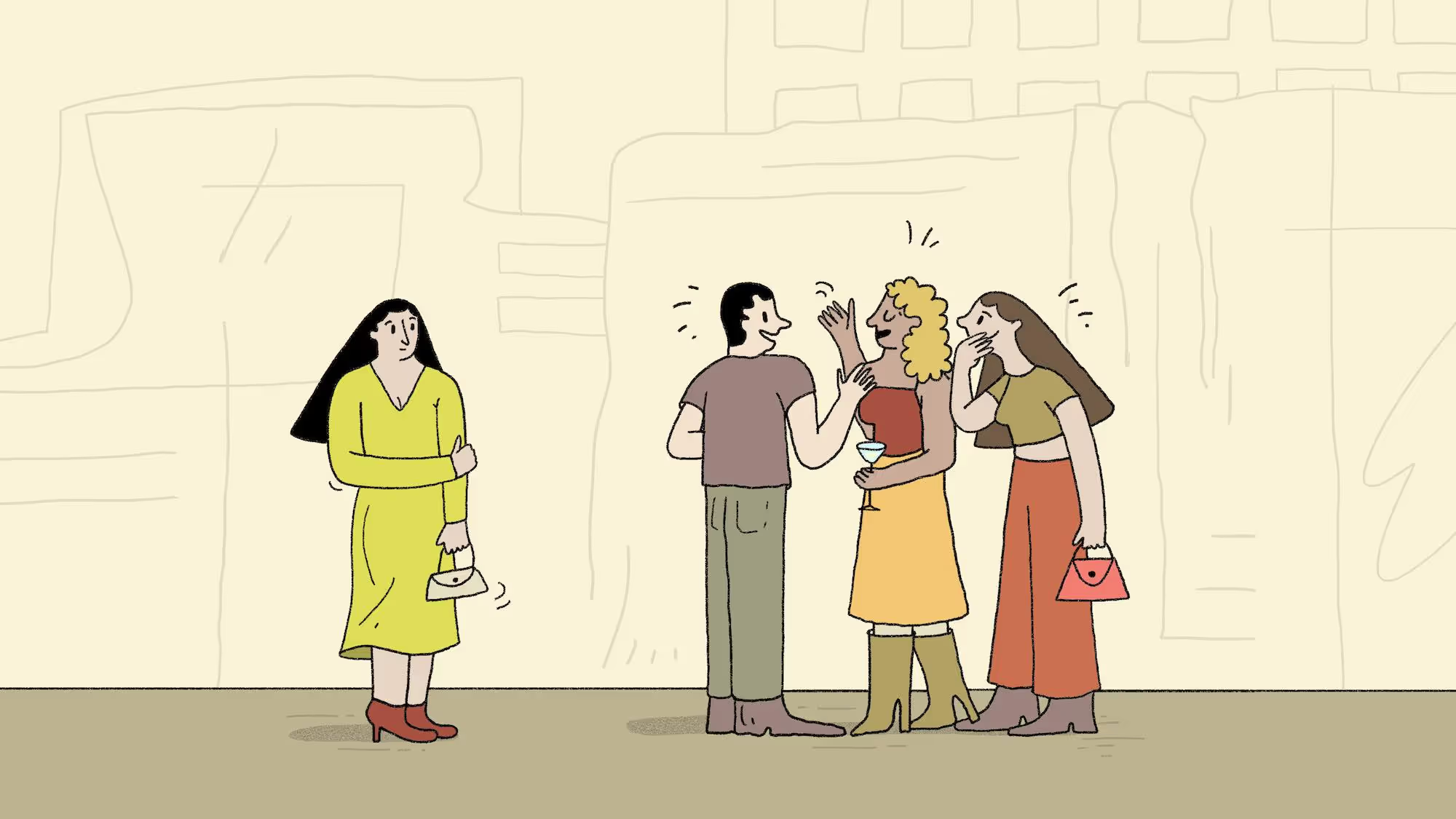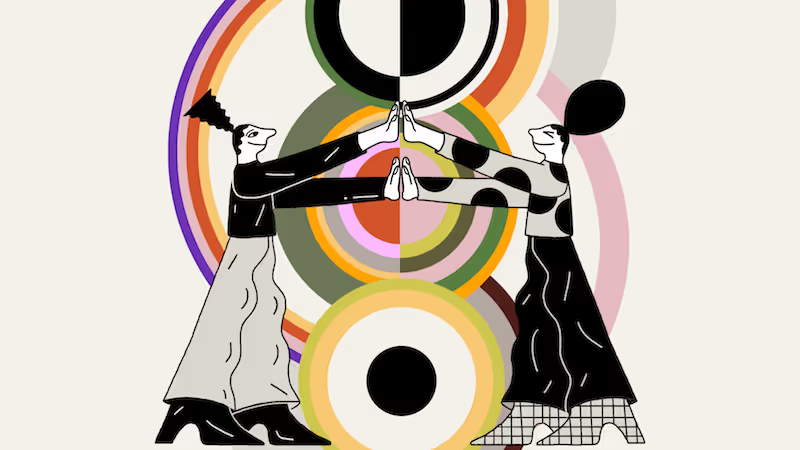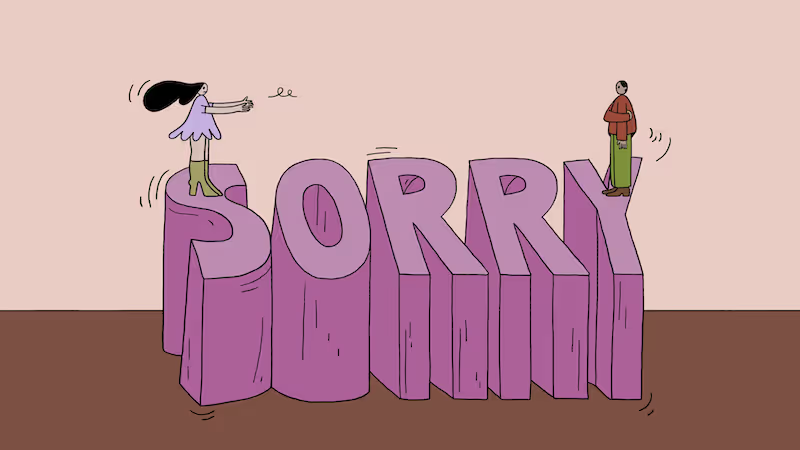Shall We Begin?
“Raise your hand if you’re experiencing some anxiety being here. Keep it low if it’s just a little anxiety. Raise it to a height that corresponds with the intensity. So, if you’re having a panic attack right now, your hand should be as high in the air as possible.”
Two weeks ago, I said these words to hundreds of first-time attendees of TED’s annual conference in Vancouver. The organizers had invited me to speak to newcomers about forming connections, grappling with imposter syndrome, and reconciling our home lives with the adventures to come in the week ahead.
“Find someone whose hand is at the same height as yours and give each other a little high five. Can you two be anchors for each other while you’re here?”
Five years had passed since my last TED conference. I was very moved to be back. I kept thinking about my first mainstage talk, in 2015, and how it felt to be there. I was riddled with anxiety, not only because I was preparing my talk but because I wasn’t sure what authenticity looked like in this space. Everyone around me seemed so confident and successful. Could I admit that I didn’t feel the same way? What was appropriate to share about myself, my feelings, my inner world, my life back home? It wasn’t until after I’d delivered my talk that I found out: I was not alone in these feelings — not at all.
Perhaps it’s the nature of being a therapist. Perhaps it’s because my talk struck a chord. As soon as I exited the stage, in 2015, I became a walking confessional booth. Strangers approached me to discuss their relational challenges in deeply personal detail. Occasionally, multiple people would approach, and I’d suggest they talk to each other. You three are going through something similar. Why don’t you get coffee and discuss? They almost always did.
At every conference, there is what’s happening on the stage, but there’s also what’s happening in the hallways, in the bathrooms, and on the group chats. People are eager to connect on a personal level. They likely have deep connections at home, but there is something unique about connecting in a new space with new people in real time. You can walk in alone, but you won’t be lonely for very long. But there is always the question: how much of myself should I share?
This is a question that comes up in all new adult friendships. And it’s a topic that has fascinated me my entire adult life. When I moved from my tight-knit Belgium community to Israel for university, I was perplexed by how one makes friends without having grown up with each other—without knowing each others’ parents and seeing inside each others’ homes. When I moved to America, the question evolved: how do you make friends with people who know nothing about where you come from?
These relational queries directly impacted my mental health. And, as I figured out how to make new friends—asking an Israeli student for help; meeting other foreigners in America; seeking out locals who could show me around—that directly impacted my mental health, too, for the better. And while, presently, I have lots of friends all over the globe, I still sometimes find myself asking…how much sharing is too much sharing? When is it appropriate to tell people that I’m struggling?
Candidly, my family is currently navigating a major health crisis. It’s taken me months to say this to you, my community. But I told my closest friends, old and new, right away. Friendship has been on my mind more than ever because I know I would be lost right now if not for the friends in my family’s orbit who don’t flinch when I am freaking out, who pick me up when I feel like collapsing. In the midst of all this, speaking publicly about relational health has taken on a renewed fervor for me.
At TED this year, I wanted to highlight that relational and mental health are inseparable. It’s a part of this thing. Not just the conference, but the act of convening. Not just the organization’s “ideas worth spreading,” but the social support that enables us to do so. As scores of speakers took the stage to talk about the most-pressing issues of the day—engendering both hope and terror—hundreds of attendees shared their inspirations and anxieties with their new friends. People turned toward each other, not away. Two weeks later and the group chats are still activated by that ethos. It shows no signs of slowing.
Let’s Turn the Lens on You
- When making new friends, go beyond “what do you do?”
- A question I love to ask new people is: “what would you do if you had the chance to do things differently?” It’s open to interpretation and people can choose their comfort level.
- Practice active listening.
- Ask follow up questions, but pay attention to boundaries—and respect them.
- Practice mutuality. Don’t be afraid to share things about yourself but find the line. You don’t have to go all the way in the very first interaction. Like any relationship, friendships build over time.
More From Esther
Letters From Esther #27: Friendship / a newsletter
Different from romantic or filial love, friendship is its own unique love story. Making friends is the first free choice relationship we have as kids. Our friends provide community and continuity in an ever-changing world.
Letters from Esther #1: The Friendship Workout Plan / a newsletter
Connection creates positive by-products; it is an antidote to loneliness. Friends are a lifeline, an oxygen mask. No matter how deep the connection, however, friendships require emotional maintenance. Here’s how.
The Power of Apologizing: Relearn How to Say I’m Sorry / a recent article
A strong, meaningful apology goes a long way in repairing major and minor rifts in any relationship. Intellectually, we know this. Apologizing is one of the first relationship skills we learn as young children. But it’s a skill that needs to grow with us.
Conversation Starters
A compendium of highly recommended sources of inspiration and information
I’m Reading:
- Life in Five Senses: How Exploring The Senses Got Me Out of My Head and Into the World, a new book by Gretchen Rubin
I’m Going To:
- “Dimanche,” a play by the Chaliwaté Co. now showing at BAM
I’m Watching:
- “The Eight Mountains,” a film directed by Charlotte Vandermeersch & Felix van Groeningen
- “R.M.N.,” a film directed by Cristian Mungiu
- “Sans Soleil,” a 1983 French documentary directed by Chris Marker







.svg)





